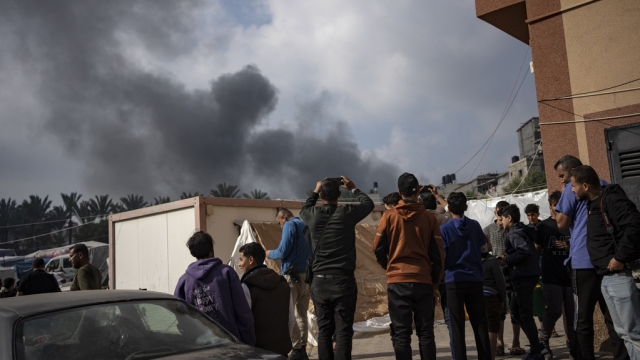Israel's military is calling the last 24 hours the "most intense day of fighting" since the start of its ground offensive in Gaza five weeks ago.
That is the military's assessment of its operations in the southern city of Khan Younis. Israeli troops are said to be in the heart of that city, which is the second-largest city in Gaza. Residents there have been given evacuation orders.
Israel's push into south Gaza — which was once the only place of refuge for Palestinians to escape the fighting — comes as it expands ground operations in its mission to eliminate Hamas. Heavy fighting is also continuing in the northern part of the territory.
Israel says it can no longer accept any Hamas presence at all in Gaza, and vows to maintain open-ended security control over the territory despite objections by the U.S. and much of the international community.
Israel Defense Forces is reportedly surrounding the home of Hamas leader Yahya Sinwar, who has been dubbed the "butcher of Khan Younis." Although he is not believed to be home, he is understood to be hiding in an underground labyrinth of tunnels underneath the Gaza strip. The Israeli military continues to call him a "dead man walking."
The military also says over the last 24 hours, it has killed at least four senior Hamas commanders and destroyed 250 of its targets.
Amid the intense fighting, displaced Palestinians are facing fewer areas where they can seek safety. The U.S. is pledging to deliver more aid for Palestinians, including a field hospital inside southern Gaza to treat wounded civilians. There is no word yet on exactly where the new field hospital will be located or when it will be up and running.
International aid officials say the health care infrastructure in Gaza has been devastated by airstrikes and limited fuel supplies.
Trending stories at Scrippsnews.com



